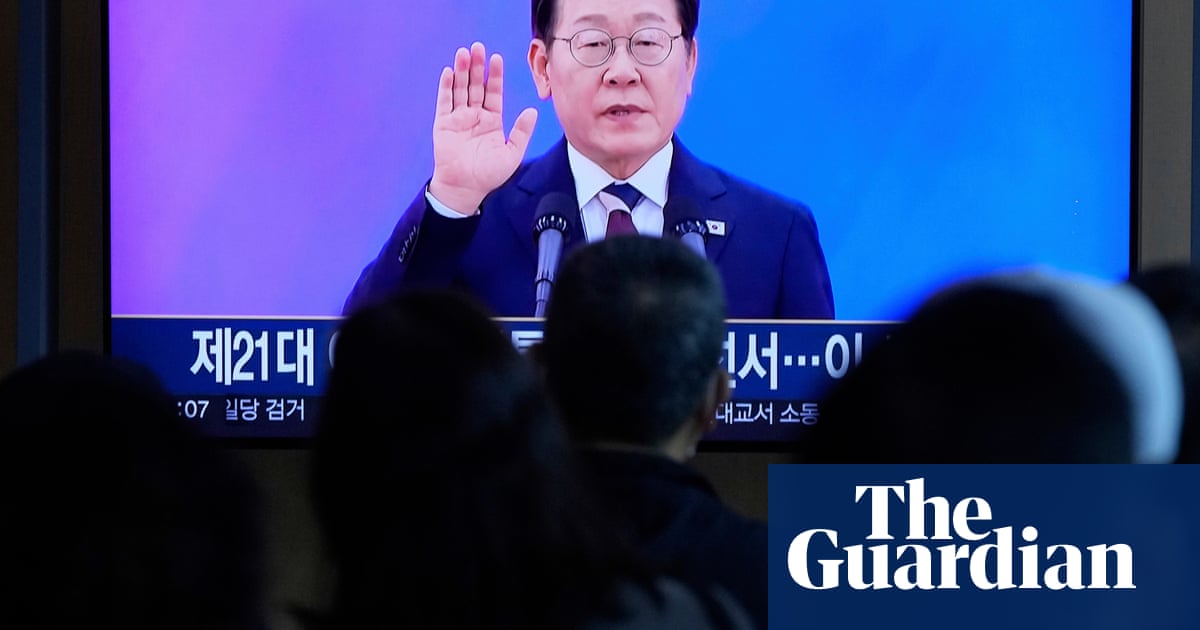Lee Jae-myung's inauguration speech highlights the challenges that South Korea faces in a rapidly changing global trade environment. His warning about the threats posed by rising protectionism and supply chain restructuring indicates a deep concern for the country’s economic stability and survival amidst international turmoil.
Global Trade Chaos and National Survival
The emphasis on the global trade chaos, particularly referencing the impact of US tariffs, underscores a broader anxiety regarding international relations and the economic ramifications for South Korea. Lee's assertion that these factors threaten the nation's survival reflects a sense of urgency and a call to action for his administration to navigate these challenges effectively.
Approach to North Korea
Lee's dual approach towards North Korea—asserting military readiness through the South Korea-US alliance while advocating for dialogue—aims to balance security concerns with the pursuit of peace. This stance may resonate with various segments of the population who desire a peaceful resolution to the ongoing tensions on the peninsula.
Political Context and Public Sentiment
The backdrop of Lee's rise to power, following the removal of former President Yoon Suk Yeol, suggests a shift in public sentiment towards more liberal policies, particularly regarding social inequalities and corruption. Lee's personal narrative from poverty to political leadership may further endear him to the electorate, shaping a perception of hope and progress.
Manipulative Aspects of the Article
The language used in the article may be seen as somewhat manipulative, as it emphasizes threats to survival, potentially inciting fear among the public. This could serve to rally support around Lee’s administration, framing his policies as necessary responses to existential threats. The portrayal of North Korea and its military ties with Russia may also serve to create a narrative that justifies a robust military stance.
Comparative Analysis with Other Reports
When compared to other reports on international trade and North Korea, this article positions South Korea as a vulnerable player in a complex geopolitical landscape. It highlights the interconnectedness of global events, suggesting that South Korea's fate is tied to broader international dynamics.
Potential Economic and Political Impact
The implications of Lee's speech could have significant effects on public opinion and economic forecasts. A continued focus on military readiness and international alliances may bolster defense stocks, while the emphasis on dialogue could lead to fluctuations in investments related to North Korean affairs. The speech's themes could shape public discourse on foreign policy, influencing future elections and governmental priorities.
Support from Specific Communities
Lee's message is likely to resonate with liberal and progressive communities that prioritize diplomacy over militarization. His narrative may attract younger voters seeking change and those concerned about social justice and economic inequality.
Effects on Global Markets
The article's content could influence market perceptions, particularly regarding stocks related to defense and technology sectors. Traders and investors may react to Lee's approach to North Korea and international trade dynamics, impacting stock valuations and investment strategies.
Relevance to Global Power Dynamics
In terms of global power dynamics, this article reflects ongoing tensions in East Asia, particularly as North Korea continues to develop military relationships with Russia. The emphasis on cooperation with the US and Japan indicates a strategic alignment that may affect regional stability and power balances.
Use of AI in Article Composition
While it is difficult to ascertain if AI was explicitly used in the writing of this article, the structured presentation of Lee's themes and the strategic framing of his statements suggest a deliberate attempt to communicate effectively. AI models might have influenced the clarity of the message and the organization of information, but the underlying political context remains rooted in human discourse.
The news article is credible as it presents facts about a significant political event, though the framing may evoke emotional responses. The portrayal of threats and the urgent tone suggest a deliberate strategy to engage the public. Overall, the credibility is supported by the factual basis of Lee's speech, yet it also reflects a narrative designed to galvanize political support.
